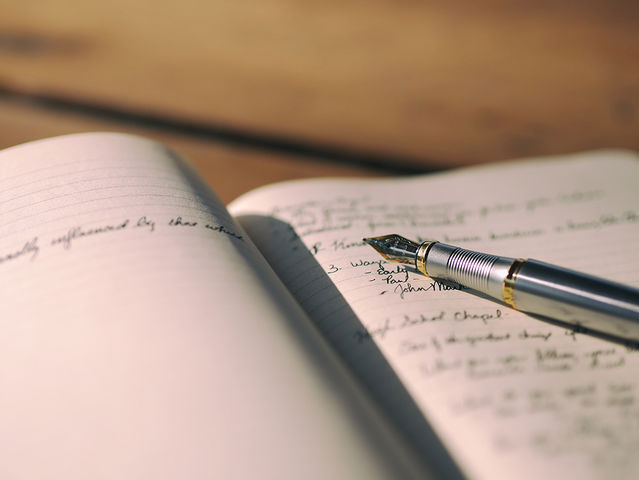
Discover the power of journaling as a proven method for stress relief.
In this article, we will explore the top 10 techniques that have been supported by psychologists and mental health experts.
From mindful journaling to creative expression, these methods offer a variety of ways to unwind and find solace in writing.
By incorporating gratitude, prompts, and other techniques, you can tap into the therapeutic benefits of journaling to alleviate stress and promote emotional well-being.
Join us on this journey of self-discovery and find freedom through the written word.
Mindful Journaling
With a focus on self-reflection and awareness, mindful journaling offers individuals a means of cultivating inner calm and managing stress. Mindfulness exercises, such as mindful breathing, can be incorporated into the act of journaling to enhance its stress-relieving benefits.
Mindful breathing involves taking slow, deep breaths while paying close attention to the sensations of the breath entering and leaving the body. This practice helps to anchor the mind in the present moment, reducing anxiety and promoting a sense of tranquility.

When combined with journaling, mindful breathing can deepen the connection between thoughts, emotions, and the physical body. By bringing mindful awareness to the act of writing, individuals can gain insights into their stress triggers, patterns of thinking, and emotional responses.
This self-reflection fosters a greater understanding of oneself and provides a valuable tool for managing stress and promoting overall well-being.
Gratitude Journaling
Practicing gratitude journaling allows individuals to cultivate a sense of appreciation and contentment, fostering resilience and reducing stress levels. This form of journaling involves regularly writing down the things one is grateful for, whether big or small. By acknowledging and documenting these moments of gratitude, individuals can shift their focus from negativity to positivity, leading to improved mental well-being.
Gratitude practice has been shown to have numerous benefits for stress relief. It promotes mindfulness and helps individuals become more present, allowing them to savor the positive experiences in their lives. It also encourages a shift in perspective, helping individuals to reframe challenging situations and find the silver linings. This can contribute to a greater sense of control and resilience in the face of stressors.
Incorporating mindfulness techniques into gratitude journaling can further enhance its effectiveness. By practicing mindfulness during the journaling process, individuals can fully immerse themselves in the experience of gratitude, deepening their appreciation and amplifying the stress-relieving benefits.
Stream of Consciousness Writing
Journaling can be a therapeutic practice that allows individuals to explore their thoughts and emotions. Stream of consciousness writing is a powerful technique for achieving this. It involves writing without any specific structure or direction, allowing your thoughts to flow freely onto the page. This technique encourages you to write without judgment or censorship, giving you the freedom to express yourself fully.
Stream of consciousness writing can be beneficial for stress relief in several ways. Firstly, it allows you to release pent-up emotions and thoughts, providing a sense of catharsis. By getting your thoughts out of your head and onto paper, you can gain a clearer understanding of your emotions and experiences.
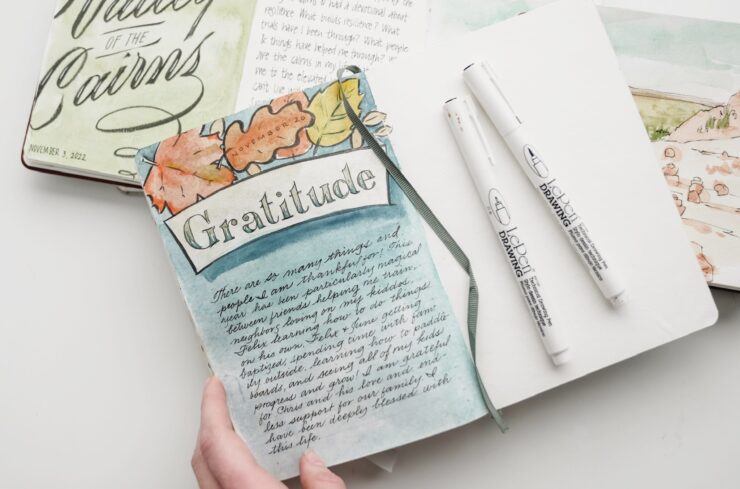
Additionally, stream of consciousness writing can help you identify patterns or recurring themes in your thoughts, which can lead to valuable insights and self-reflection. Overall, stream of consciousness writing provides a safe and non-judgmental space for you to explore your innermost thoughts and feelings, promoting self-discovery and stress relief.
Creative Expression Through Journaling
Engaging in creative expression through journaling allows individuals to tap into their inner creativity and explore new ways of self-expression. Journaling is a versatile tool that can be used to channel emotions, thoughts, and ideas into a tangible form. By incorporating various journaling techniques, individuals can enhance their self-expression and experience numerous benefits for stress relief.
One of the key benefits of creative expression through journaling is the ability to release pent-up emotions and thoughts. Through the act of writing, individuals can externalize their inner experiences, providing a sense of relief and catharsis. Additionally, journaling allows individuals to gain insights into their emotions and patterns of thinking, fostering self-awareness and personal growth.
There are several journaling techniques that can be used for creative expression. Free writing, where individuals write without censorship or judgment, encourages the flow of ideas and emotions. Visual journaling incorporates drawing, painting, or collage to visually express thoughts and feelings. Poetry or prose writing offers a more structured approach to creative expression.
Bullet Journaling for Stress Relief
A highly effective method for managing stress and promoting organization is utilizing a systematic approach known as bullet journaling. This technique has gained popularity due to its versatility and adaptability to individual needs. Here are three bullet journaling techniques that can help alleviate stress and enhance overall well-being:
Rapid Logging: This technique involves jotting down brief notes, tasks, and events in a concise and structured manner. By capturing important information quickly, it reduces the cognitive load and helps maintain focus.
Collections and Trackers: Bullet journaling allows for the creation of customized collections and trackers, such as habit trackers, gratitude lists, or mood logs. These tools provide a visual representation of progress and help cultivate positive habits.

Mindful Reflection: Taking time for self-reflection is a crucial aspect of bullet journaling. By regularly reviewing past entries and assessing emotions and thoughts, individuals can gain insight into their stress triggers and develop effective coping strategies.
The benefits of bullet journaling extend beyond stress relief, providing a sense of control, increased productivity, and a creative outlet for self-expression.
Reflective Journaling
Reflective journaling is a powerful tool for stress relief and personal growth. By engaging in self-reflection, individuals can gain a deeper understanding of their thoughts, feelings, and experiences.
This process allows for increased self-awareness and can help individuals identify patterns, triggers, and coping mechanisms that contribute to their stress levels.
Through thoughtful and honest reflection, reflective journaling promotes personal growth and empowers individuals to make positive changes in their lives.
Benefits of Reflective Journaling
While there are numerous benefits associated with engaging in reflective journaling, one of the most notable advantages is its ability to promote self-awareness and personal growth. Reflective journaling provides a safe space for individuals to explore their thoughts, emotions, and experiences, ultimately leading to a deeper understanding of oneself.
Here are three ways in which reflective journaling enhances self-awareness and promotes personal growth:
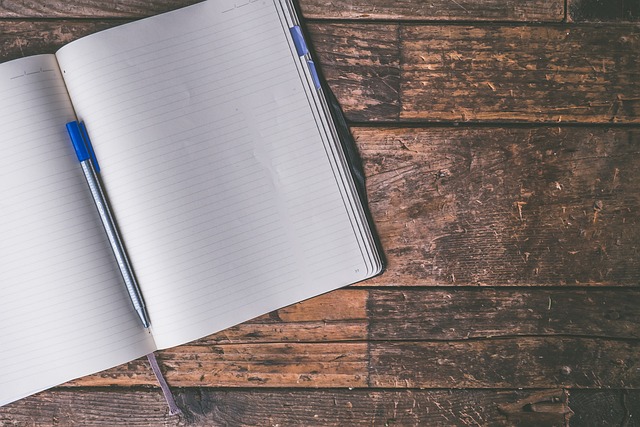
Promoting Mindfulness: Reflective journaling encourages individuals to be present and fully engaged in the process of writing. By focusing on the present moment and reflecting on their experiences, individuals can develop a greater sense of mindfulness, which can help reduce stress and enhance overall well-being.
Enhancing Self-Reflection: Through reflective journaling, individuals have the opportunity to engage in self-reflection, allowing them to gain insight into their thoughts, feelings, and behaviors. This process of self-reflection can lead to increased self-awareness and a better understanding of one's values, beliefs, and goals.
Facilitating Emotional Processing: Reflective journaling provides a space for individuals to express and process their emotions. By acknowledging and exploring their emotions through writing, individuals can gain clarity and perspective on their experiences, leading to emotional growth and resilience.
Incorporating reflective journaling into your routine can be a powerful tool for self-discovery, personal growth, and stress relief.
Effective Self-Reflection Techniques
Regularly incorporating self-reflection techniques into your journaling practice can greatly enhance your personal growth and overall well-being. Journaling for anxiety relief and self-discovery is a powerful tool that allows you to explore your thoughts, emotions, and experiences in a safe and supportive space.
By engaging in self-reflection through journaling, you can gain a deeper understanding of yourself, identify patterns and triggers, and develop effective coping strategies for managing stress and anxiety.
To effectively engage in self-reflection through journaling, it is important to create a consistent practice. Set aside dedicated time each day or week to write in your journal, allowing yourself the freedom to express your thoughts and feelings without judgment. Use prompts or questions to guide your reflection, such as 'What are my current stressors?' or 'What actions can I take to support my well-being?'
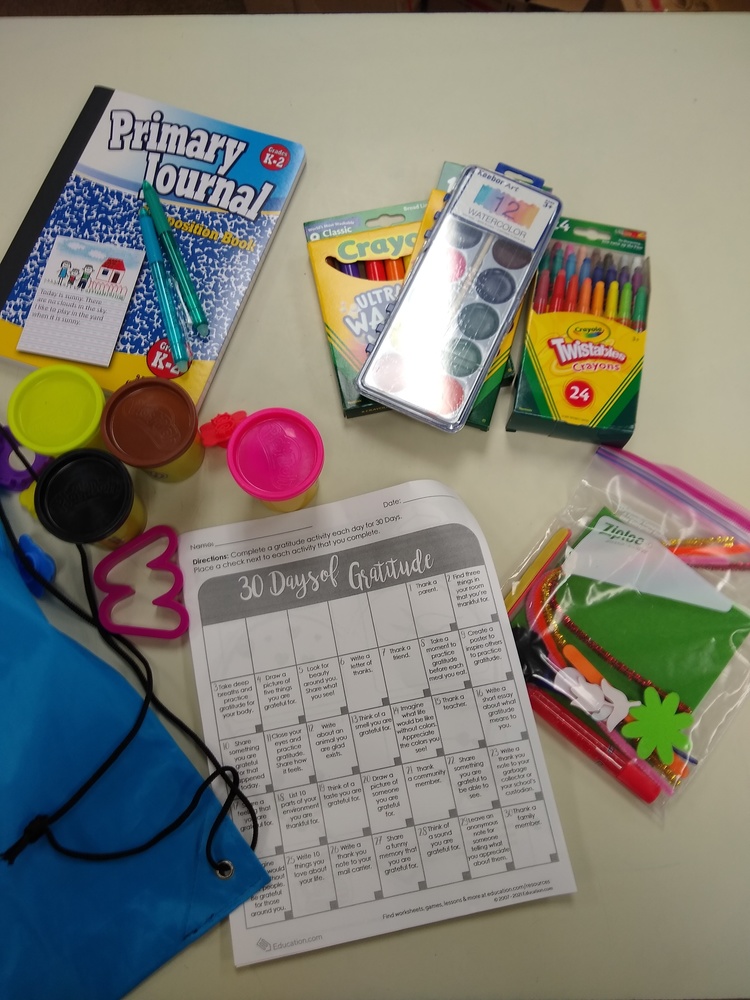
As you write, focus on being honest and authentic with yourself. Use your journal as a tool for self-exploration and self-discovery, allowing your thoughts and emotions to flow onto the pages freely. Don't worry about grammar or punctuation; instead, prioritize the process of self-reflection and the insights that arise from it.
In addition to writing about your experiences and emotions, consider exploring different perspectives and reframing negative thoughts. Use your journal to challenge unhelpful beliefs and explore alternative ways of thinking. This can help you gain a fresh perspective and develop a more positive mindset.
Self-reflection through journaling is a personal journey, and it may take time to develop a routine and find what works best for you. Be patient with yourself and trust the process. Journaling can be a powerful tool for stress relief and self-discovery, providing you with valuable insights and a greater sense of well-being.
To truly foster personal growth, actively engage in self-reflection and journaling as a means of exploring your inner thoughts and emotions. Reflective journaling is an effective tool for promoting personal development and self-improvement. Here are three ways in which reflective journaling can contribute to your growth:
Gain self-awareness: By writing down your thoughts and feelings, you can gain a deeper understanding of yourself. This self-awareness allows you to identify patterns, strengths, and areas for improvement.
Enhance problem-solving skills: Through reflective journaling, you can analyze challenging situations and explore different perspectives. This process helps you develop critical thinking skills and find creative solutions to problems.
Track progress and set goals: Keeping a reflective journal allows you to track your personal growth over time. By reviewing past entries, you can celebrate achievements and set new goals for self-improvement.

Incorporating reflective journaling into your routine can be a transformative practice that nurtures personal development and facilitates self-improvement.
Prompts and Writing Exercises for Stress Relief
When it comes to using journaling for stress relief, prompts and writing exercises can be highly effective.
These prompts provide a structured framework for expressing and exploring emotions, while writing exercises offer a creative outlet for releasing stress.
Therapeutic writing exercises, such as guided imagery or free writing, can help individuals process their thoughts and feelings, leading to a greater sense of relief and well-being.
Effective Journaling Prompts
Journaling prompts can provide a much-needed outlet for individuals seeking stress relief through writing exercises. These prompts serve as a catalyst for self-reflection, allowing individuals to explore their thoughts and emotions in a safe and non-judgmental space.
Here are three effective journaling prompts for anxiety and self-discovery:
'Describe three things that are causing you stress right now and explore why they are affecting you.'

'Write a letter to your younger self, offering words of comfort and advice.'
'List five things you are grateful for today and reflect on how they positively impact your well-being.'
Therapeutic Writing Exercises
Engaging in therapeutic writing exercises can provide a constructive outlet for stress relief and promote emotional well-being. Journaling for anxiety relief is a powerful tool that allows individuals to express their thoughts and feelings in a safe and private space. There are various therapeutic writing techniques that can be used to alleviate stress and anxiety.
One effective technique is called 'stream of consciousness' writing, where individuals write continuously without censoring or editing their thoughts. This allows for a free flow of emotions and helps to release pent-up stress and tension.
Another technique is 'gratitude journaling,' where individuals write about the things they are grateful for each day. This practice helps shift focus away from stress and anxiety towards positive aspects of life.
Using writing prompts can also be beneficial. Prompts can range from simple questions like 'What are you feeling right now?' to more specific topics such as 'Write about a time when you overcame a challenge.' These prompts provide structure and guidance, making it easier to start writing and explore emotions.
Incorporating therapeutic writing exercises into a daily routine can significantly reduce stress and promote emotional well-being. It is important to create a safe and non-judgmental space for oneself during the writing process. By engaging in journaling for anxiety relief, individuals can gain a better understanding of their emotions, find clarity, and experience a sense of release and relaxation.

Stress-Relieving Creative Prompts
One effective way to explore your creativity and alleviate stress is by incorporating a variety of creative prompts into your writing practice. Creative prompts are designed to inspire and stimulate your imagination, allowing you to express yourself freely and release stress through writing.
Here are three stress-relieving creative prompts that can help you tap into your creativity and find tranquility:
Mindful Observation: Take a moment to observe your surroundings and choose an object that catches your attention. Write a detailed description of the object, focusing on its shape, color, texture, and any emotions or memories it evokes. This exercise promotes mindfulness and helps you stay present in the moment.
Stream of Consciousness: Set a timer for 10 minutes and write continuously without pausing or editing. Let your thoughts flow freely onto the paper, without judgment or self-censorship. This technique allows you to release pent-up emotions and thoughts, providing a sense of catharsis and relief.
Visual Prompt: Find a captivating image or photograph and let it inspire your writing. Describe the scene, characters, or emotions depicted in the image. Use your imagination to create a story or poem based on the visual prompt. This exercise encourages creativity and helps you explore different perspectives and narratives.
Incorporating these mindfulness techniques and relaxation techniques into your writing practice can enhance the stress-relieving benefits of journaling. By engaging in these creative prompts, you can tap into your inner creativity, express your emotions, and find solace in the act of writing.
Visual Journaling
The use of images as a means of self-expression and reflection has been widely recognized in the field of art therapy. Visual journaling, a form of art therapy, combines the power of visual storytelling with the therapeutic benefits of journaling.

By using images, colors, and symbols, individuals can explore their thoughts and emotions in a non-verbal way, allowing for a deeper understanding and processing of their experiences. Visual journaling provides a creative outlet for expressing and releasing stress, as well as a tool for gaining insight and self-awareness.
It allows individuals to tap into their subconscious mind and access emotions that may be difficult to verbalize. This form of journaling can be particularly helpful for those who struggle with finding the right words or who feel more comfortable expressing themselves through art.
Through visual journaling, individuals can create a safe and private space for self-reflection and personal growth.
Dream Journaling for Stress Relief
Dream journaling can be a powerful tool for stress relief. By recording and interpreting the symbolic meanings of our dreams, we can gain insight into our subconscious thoughts and emotions.
This process allows for emotional release through writing, helping to alleviate stress and promote better sleep.
Symbolic Dream Interpretations
Through the practice of symbolic dream interpretations, individuals can unlock the hidden meanings behind their dreams and utilize dream journaling as a tool for stress relief. Dream symbolism holds great significance in understanding the subconscious mind and can provide valuable insights into one's emotional state.
Here are three ways dream journaling can help individuals interpret their dreams and alleviate stress:
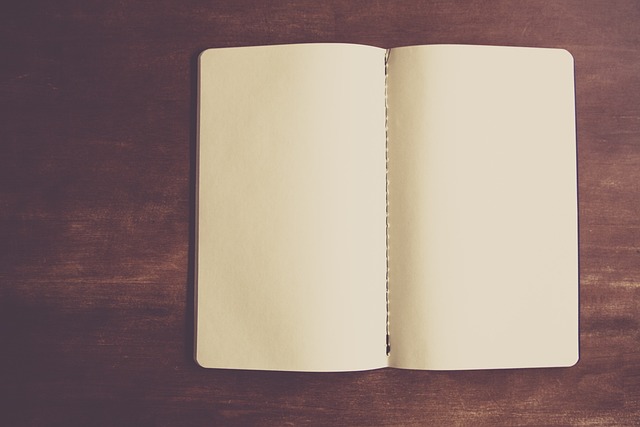
Recognizing patterns: By keeping a dream journal, individuals can identify recurring symbols or themes in their dreams. This can help them uncover patterns and gain a deeper understanding of their subconscious thoughts and emotions.
Exploring emotions: Dreams often reflect our suppressed emotions. By analyzing the symbols and events in their dreams, individuals can tap into their feelings and gain clarity about unresolved issues or sources of stress in their lives.
Promoting self-reflection: Dream journaling encourages self-reflection and introspection. It provides a safe space to explore personal experiences and gain new perspectives, ultimately leading to personal growth and stress relief.
Emotional Release Through Writing
How can journaling serve as a powerful tool for emotional release and stress relief?
Writing therapy, also known as expressive writing, has been shown to be an effective method for emotional healing and stress reduction. By putting pen to paper, individuals can release their emotions and gain insight into their thoughts and feelings.
Journaling provides a safe and non-judgmental space to explore and process difficult emotions, allowing individuals to express themselves freely and authentically. Through the act of writing, individuals can gain clarity, perspective, and a sense of release. It allows them to externalize their emotions, making them more manageable and less overwhelming.
Additionally, the act of journaling can help individuals identify patterns, triggers, and underlying issues contributing to their stress.

By reflecting on our dreams and recording them in a journal, we can promote better sleep and alleviate stress. Dream journaling is a powerful technique that allows us to delve into the subconscious mind and gain insights into our emotions and experiences. Here are three ways dream journaling can promote better sleep and relaxation:
Increased self-awareness: Keeping a dream journal helps us become more attuned to our dreams and emotions. By recording our dreams and reflecting on their meanings, we can gain a deeper understanding of ourselves, leading to improved self-awareness and emotional well-being.
Stress reduction: Dream journaling provides an outlet for processing stress and anxiety. Through the act of writing down our dreams, we release the emotions associated with them, reducing their impact on our sleep and overall well-being.
Improved sleep quality: By incorporating dream journaling into our bedtime routine, we signal to our brain that sleep is a priority. This practice helps calm the mind, allowing for a more restful and rejuvenating sleep experience.
Incorporating dream journaling into our relaxation techniques can contribute to better sleep and overall stress relief. Give it a try and experience the benefits firsthand.
Guided Journaling Techniques
While many people may find solace in freeform journaling, guided journaling techniques offer a structured approach to explore and alleviate stress. Guided journaling combines the benefits of journaling with other stress-relief practices, such as guided meditation and deep breathing exercises.
Guided meditation involves using a recorded or written script to guide your thoughts and focus your attention. This can help you relax, reduce anxiety, and promote a sense of calm. Deep breathing exercises, on the other hand, are a simple yet effective way to activate the body's relaxation response and reduce stress. By incorporating these techniques into your journaling practice, you can enhance the therapeutic benefits of journaling.

Guided journaling techniques provide a framework for self-reflection and introspection. They can help you gain insights into your emotions, thoughts, and behaviors, while also providing a sense of guidance and direction. By following prompts or specific journaling exercises, you can explore different aspects of your life, identify patterns or triggers of stress, and develop coping strategies. Guided journaling can be particularly helpful for individuals who struggle with starting or maintaining a journaling practice on their own, as it provides structure and support.
Incorporating guided meditation and deep breathing exercises into your journaling routine can deepen the relaxation and stress-relieving effects. Before you begin journaling, take a few minutes to practice deep breathing and calm your mind. This can help you enter a more focused and relaxed state, allowing for a more meaningful and productive journaling experience. As you write, you can also incorporate guided meditation techniques, such as visualizations or affirmations, to further enhance your stress relief.
Frequently Asked Questions
Can Journaling Really Help Reduce Stress and Anxiety?
Yes, journaling has been proven to help reduce stress and anxiety. By providing an outlet for thoughts and emotions, journaling benefits individuals by promoting self-reflection, emotional regulation, and problem-solving. Various journaling techniques can be used to achieve these benefits.
How Often Should I Journal to Experience the Benefits of Stress Relief?
To experience the benefits of stress relief through journaling, it is important to journal with a frequency that works for you and to maintain consistency in your practice. Find a schedule that allows you to reflect and express your thoughts effectively.
Are There Any Specific Journaling Techniques That Are More Effective for Stress Relief?
There are several specific journaling techniques that have been proven effective for stress relief. These include mindfulness journaling, gratitude journaling, expressive writing, art journaling, reflective journaling, bullet journaling, prompt based journaling, stream of consciousness journaling, guided journaling, and morning pages.
Can Journaling Be a Substitute for Therapy or Professional Help in Managing Stress?
Journaling can be a helpful tool for managing stress, but it is not a substitute for therapy or professional help. While it can provide emotional release and self-reflection, it is important to seek professional guidance for more complex or severe stress-related issues.
Can Journaling Help Me Identify and Address the Root Causes of My Stress and Anxiety?
Journaling can indeed help in identifying and addressing the root causes of stress and anxiety. By writing down thoughts and feelings, individuals can gain insights into their triggers and find solutions to effectively manage and alleviate their stressors.
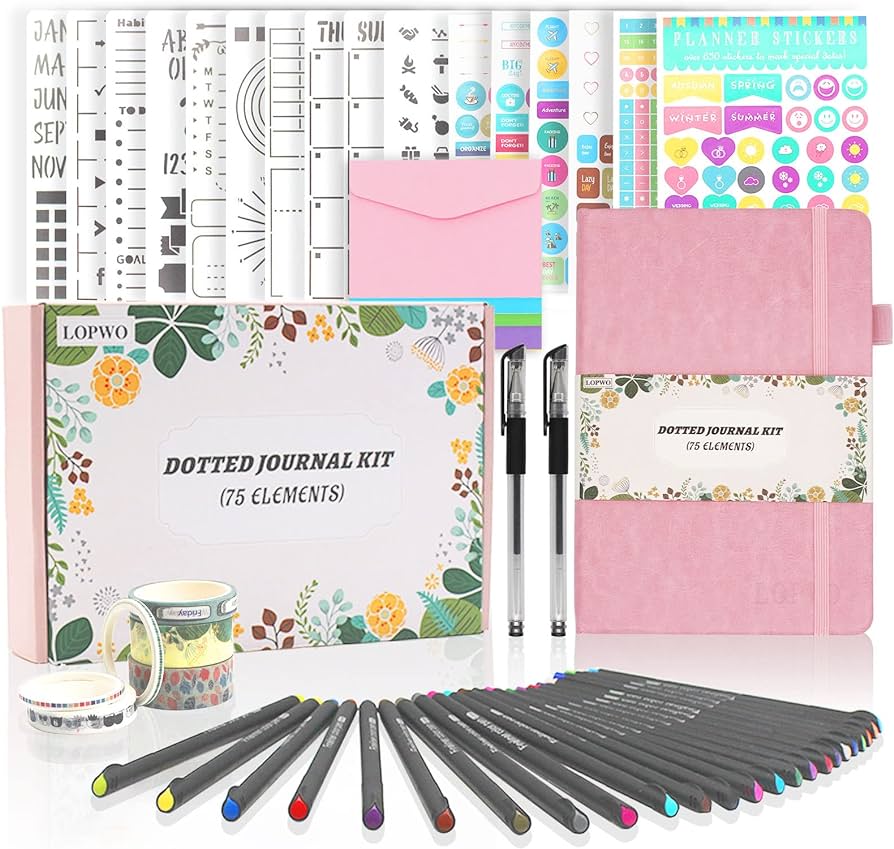
 Writing TipsCreative WritingJournalingSketching TechniquesBuying GuidesPrivacy PolicyTerms And Conditions
Writing TipsCreative WritingJournalingSketching TechniquesBuying GuidesPrivacy PolicyTerms And Conditions
